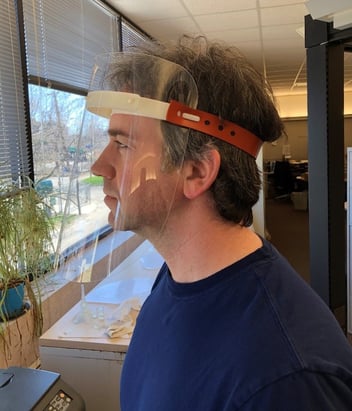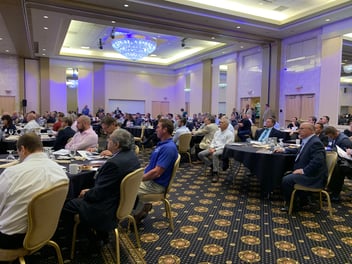E.C. Kitzel Invests in Employees, Cultivates Advancement
Commitment from employers to employees comes in many shapes and forms. In the current job market, in the midst of the “Great Resignation," many employers struggle with how to provide employees a path to the future while balancing the need for employees to develop skills and experience now. While there is no one-size-fits-all approach to employee development and advancement planning, we offer you one manufacturer’s method (E.C. Kitzel) and how its employee Nova has benefitted.
After graduating from the ACCESS to Manufacturing Careers program, Nova was hired in 2020 by E.C. Kitzel. While she enjoyed her work and appreciated E.C.Kitzel management’s investment in her, personal issues temporarily necessitated Nova leave her position. However, when she was available to return to work full-time, she went back, knowing where she would be best positioned for success. “I really liked working at Kitzel, and I knew I was still interested in manufacturing,” Nova said. “The company has good ethics, and I liked the way employees were treated. We’re not numbers here; we’re individuals.”
True to the picture Nova painted of the company, CEO Tom Schumann and his team crafted a plan to help her succeed when she was ready to return to work.
E.C. Kitzel is getting close to 100 years in operation, and a constant throughout that time has been its commitment to treating employees like family. According to Schumann, providing clear and open communication to employees about their performance and how the organization envisions each employee learning and advancing has been key to success. Every new employee begins on a three-year program, with formal reviews quarterly. Employees can earn progressive wage raises throughout this process.
Schumann says that Kitzel has used this strategy successfully for years, and they do it by assigning a more experienced employee as a mentor to new hires and expose them to different work areas. This approach considers what may pique the employees' future work and gives the company flexibility to adjust plans when scheduling or production issues arise.
Nova comments on Kitzel’s process of rotating employees through various work areas and departments to gain experience: “I’ve found that I’m most interested in automatic grinding and machining, mainly due to the thought-provoking processes involved in those areas,” she said. “I like to be on my feet and work through processes and figure out the issue when something isn’t working.”
She further explained that she had just been going back and forth checking two different machines in different work areas before taking a break to speak with us. While this multitasking may daunt some workers, Nova appreciates that E.C. Kitzel has matched her skillset and interests with their business needs in a way that is sustainable for the future of both parties. She left us with this comment about her training: “I’m a hands-on learner, and Kitzel’s training as gotten me to think like a machinist, adding onto the skills I learned in the ACCESS program.”
Nova lights up when speaking about work and how both management and other team members talk, even outside the boundaries of the formal process. “Communication is so essential, especially in manufacturing,” she remarked when asked about her plan for success.
While the exact process and format E.C. Kitzel uses with employees may not work for every manufacturer, Nova’s story provides lighthouse examples of strong communication, advancement planning, cross-training and expanding existing employees’ strengths. These examples have widespread pertinence for both small and large manufacturers and for managers and employees across the industry.


